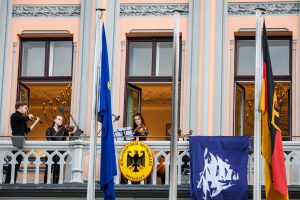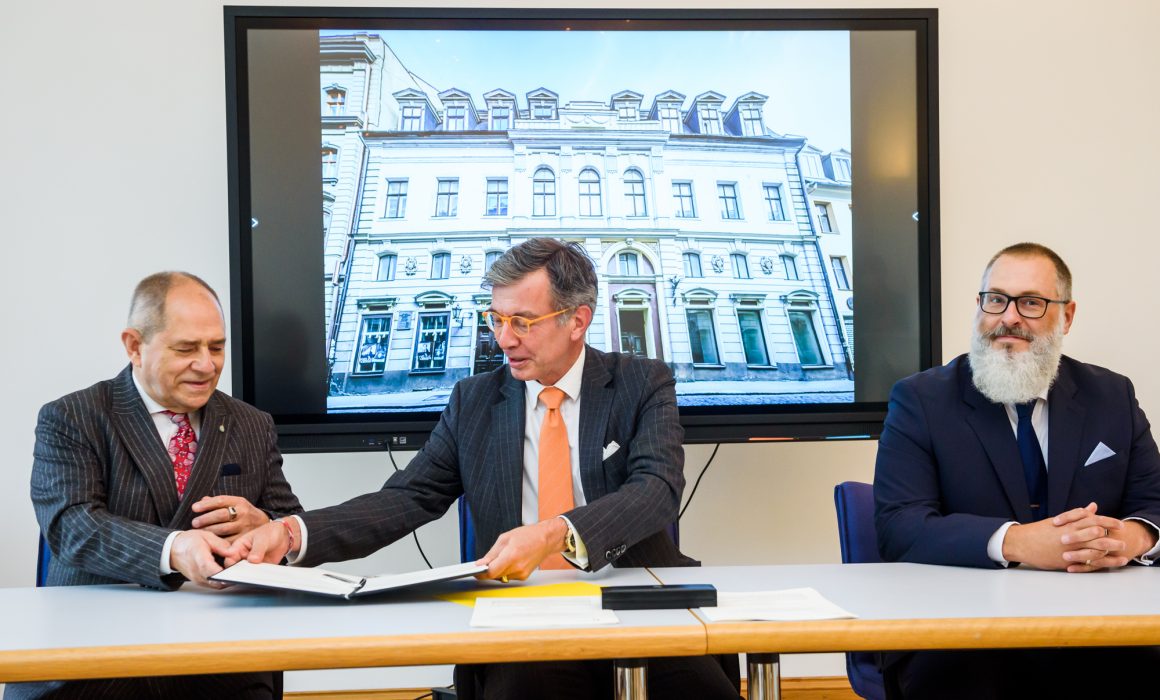The first contract for 200,000 euros for the renovation of the Wagner Theatre in Riga was signed

Foto: Gints Ivuškāns
The signing of the contract for the financing of the planning phase by the German government is an important step in the implementation of the “Renaissance of the Wagner Theatre in Riga” project – it means that the first tranche of the 200,000 euros for the restoration and renovation of the Wagner Theatre is available in the form of a grant. It will be invested in the development of the Wagner Theatre project to the next stage – the preparation and planning of the project to the sketch stage.
The vision of the Wagner Theatre Renaissance in Riga project is to create a beacon of European culture in Riga. Over a period of six years, the unique 5000 square metre building ensemble in Riga’s Old Town will be renovated and given a new lease of life. The importance of the project is also confirmed by the patrons of the Wagner Theatre – Latvian President Egils Levits, German President Frank-Walter Steinmeier and the great-granddaughter of Richard Wagner, Eva Wagner-Pasquier.
A total of 35 million euros will be needed for the restoration and revitalisation of the former first Riga theatre. The restoration of the Wagner Theatre will not only improve the diversity and accessibility of cultural events for the Latvian population, but also strengthen the image of Riga and Latvia as a cultural centre and the connection to Richard Wagner, who was Kapellmeister at the Wagner Theatre for two years (1837-1839). The project envisages not only the renovation of the building and the theatre hall, but also the establishment of master classes and a museum. The Wagner Theatre will realise Wagner’s vision of the “GesamtkunstWerk21” – an incubator for all art forms worthy of the 21st century and which will become an international centre for young artists.

